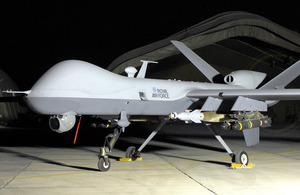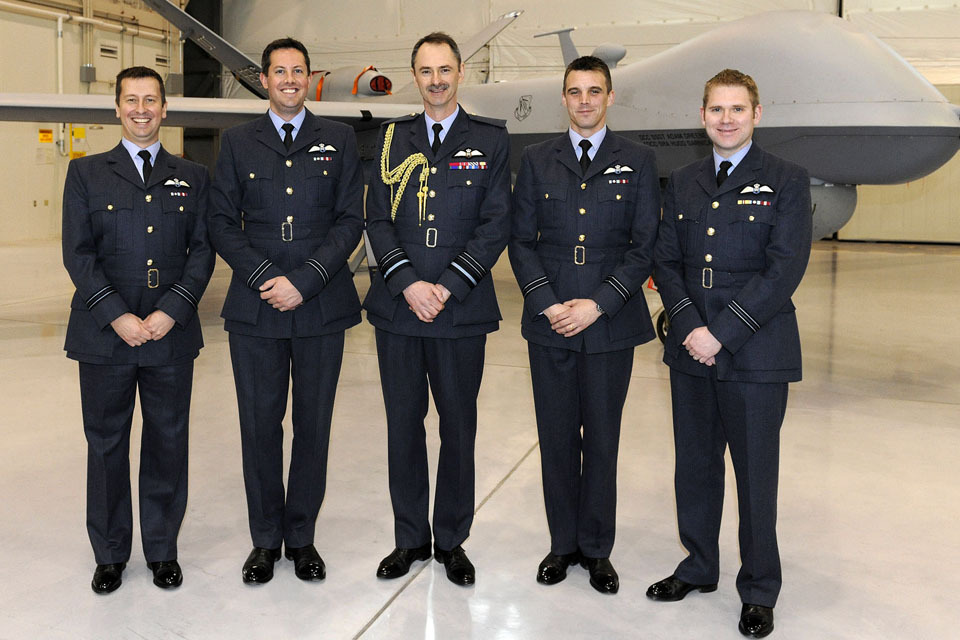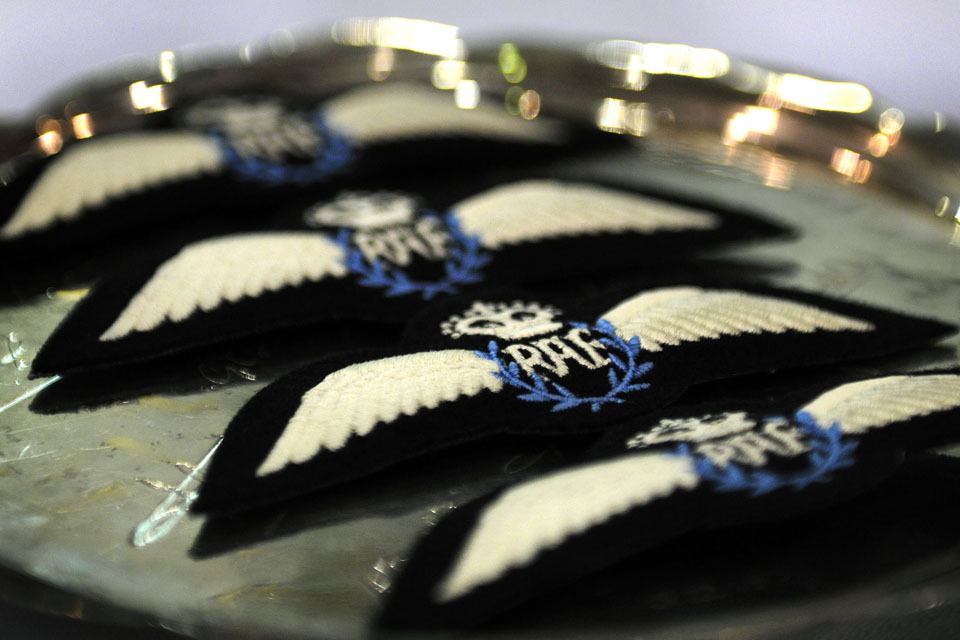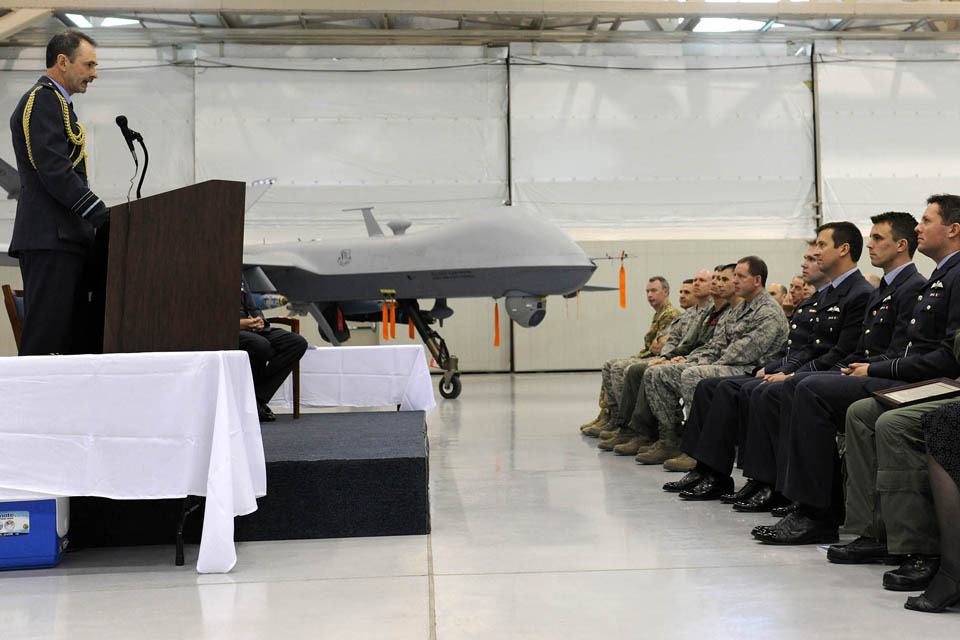RAF Reaper pilots gain wings
The UK's first airmen officially qualified to fly remotely-piloted air systems have graduated in the USA.

An RAF MQ-9 Reaper remotely-piloted aircraft from 39 Squadron in Afghanistan (stock image) [Picture: Senior Aircraftman Andrew Morris, Crown copyright 2008]
In the first graduation ceremony of its kind, the 4 RAF pilots were presented with specialist pilot badges at Creech Air Force Base in Nevada.
The graduation follows the announcement in December 2012, by the RAF, of the creation of a specialised flying branch for those flying remotely-piloted air systems (RPAS).
The announcement is recognition within the RAF of the growing complexity and capability of RPAS and their increasingly pivotal role on operations.

The RAF's Deputy Commander-in-Chief Operations, Air Marshal Richard Garwood, alongside 4 newly-graduated remotely-piloted aircraft pilots at Creech Air Force Base [Picture: Senior Aircraftwoman Gemma Nagi, Crown copyright 2013]
As a sub-specialisation within the RAF Flying Branch, those who qualify are known as RPAS pilots. To identify qualified RPAS pilots a dedicated RPAS pilot badge has been created, which differs only slightly from the design of the current RAF pilot badge by having blue laurel leaves to identify the specialisation.
The RAF’s Deputy Commander-in-Chief-Operations, Air Marshal Richard Garwood, awarded the first badges to the newly qualified RPAS pilots. He said:
This first graduation of RPAS pilots makes clear not only the RAF’s commitment to this pivotal technology but the associated need to produce highly qualified pilots devoted to fully exploiting RPAS capabilities now and in the future.
The RAF has 2 RPAS Squadrons; 39 Squadron currently based at Creech Air Force Base, and 13 Squadron, which is based at RAF Waddington, Lincolnshire.

Remotely-piloted air system (RPAS) pilot badges, differ only slightly from the current RAF pilot badges; blue laurel leaves identify the specialisation [Picture: Senior Aircraftwoman Gemma Nagi, Crown copyright 2013]
The RAF currently flies the Reaper MQ-9 Remotely piloted aircraft, which can be armed but are used primarily for real-time Intelligence, Surveillance and Reconnaissance (ISR) support and are an integral part of the RAF’s airpower capability, complementing its manned aircraft.
Like manned aircraft, the Reapers are always under the control of human crews working to the same legal rules of engagement but have the immense advantage over manned aircraft by being able to loiter or persist over a target area far longer.
The establishment of the RPAS pilot flying branch has been designed to aid the recruitment and training of qualified pilots to support current Reaper based operations but also gives the RAF the flexibility to convert and operate other future potential remotely-piloted air systems that might be considered by the Ministry of Defence.

Air Marshal Richard Garwood speaks at the graduation [Picture: Senior Aircraftwoman Gemma Nagi, Crown copyright 2013]
Addressing those gathered at the graduation ceremony, Wing Commander Thomas Burke, the officer commanding 39 Squadron, said:
Today’s graduating Reaper pilots should be justifiably proud of their achievements, having paved the way for the development of a new and exciting sub-specialisation within the Royal Air Force.
To earn their wings they’ve had achieve the highest standards of airmanship and operational prowess, and I am delighted that they will soon join the RAF’s Reaper squadrons operating the aircraft in support of UK and NATO forces in Afghanistan.
RPAS are an essential part of the Royal Air Force’s force mix now and in the future; today marks the establishment of a sub-specialisation that will ensure the Royal Air Force can continue to lead the way in providing this essential and burgeoning battle-winning capability.